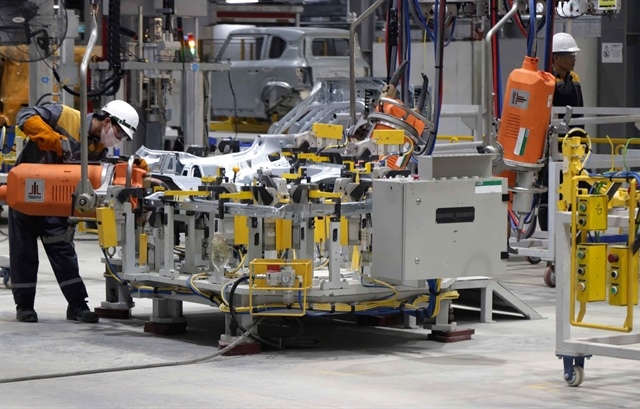’Green’ products popular in VN
’Green’ products popular in VN
Tran Minh Tien, owner of a shop in Long An Province, said he sells some 10 kinds of goods made from natural and environment-friendly materials such as grasses, bamboo and coconut fibre, replacing products made from plastic.

He said he co-operates with the Women’s Association of Duc Hue District in the province to produce handmade products from such natural materials to provide employment to local women.
The products are also sold in many other cities and provinces in the south, especially at shops specialising in green and clean products in HCM City. In fact, it is becoming something of a trend.
Tran Thi Quyen, director of the Organik House Co Ltd, told Sai Gon Giai Phong newspaper: "Our company focuses on producing food containers made from bagasse, areca spathe and coconut fibre to replace plastic and styrofoam boxes; glass, metal and bamboo straws to replace plastic straws; and glasses made from bagasse and bamboo fibre; and spoons made from the spathe of areca trees and bamboo to replace plastic glasses and spoons.
“If used extensively, these products made from natural materials can fully replace plastic products that are harmful to the environment."
According to market research companies, more and more Vietnamese consumers are willing to spend more on food produced from safe and environmentally friendly materials.
Experts have said to increase competitiveness companies should pay greater attention to building green brands as eco-friendly products are giving many enterprises a competitive edge.
Plastic waste
Dr Prof Le Huy Ba said Viet Nam is one of the countries that discharge large volumes of plastic waste into the ocean. It dumps around 1.8 million tonnes a year, he said.
Plastic wastes not only cause pollution at the dumping spot but also drift into canals, rivers and seas, he said.
Marine animals eat them and often die, which eventually causes ecological imbalances, he said.
Nguyen Toan Thang, director of the HCM City Department of Natural Resources and Environment, said the city collects and processes more than 8,600 tonnes of household garbage daily, with plastic wastes accounting for some 20 per cent.
The city’s waste sorting programme has significantly helped the city since plastic is sorted and reused, recycled or incinerated, he said.
Nguyen Thi Hoai Linh, director of Environment and Development in Action in Viet Nam, said the Government should issue policies to reduce the production of plastic utensils and encourage businesses to make products from environmentally-friendly materials to replace them.
Businesses need to strike a balance between economic and environmental issues, she warned.




















